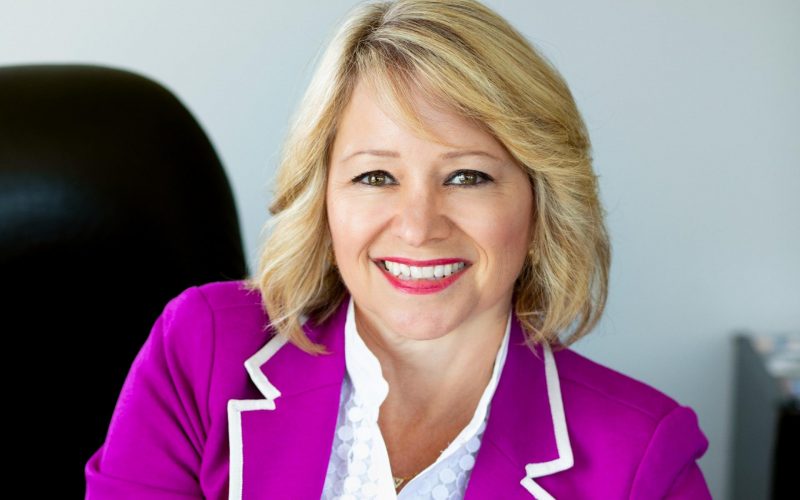‘Salmon farmers keep us going’
Vancouver Island businesses say salmon farmers, who have embraced a strident ‘support local first’ philosophy, are keeping them going amidst the COVID-19 pandemic.
By Fabian Dawson
SeaWestNews
It was only about two months ago, as the COVID-19 outbreak spread across Vancouver Island, Bruce Dirom had to shut down his salmon processing business in Port Hardy and let some employees go.
Today, Dirom can’t find enough workers to keep up with orders that are flooding his Hardy Buoys Smoked Fish Inc., which employs between 65 and 75 people in a town of about 4,000.
Over at Campbell River, another coastal community on Vancouver Island, Aquatrans, a specialty service truck carrier, is making plans for a new seven-acre depot and looking to hire more workers.
“We are growing because of the support we get from the local communities and local farmers,” said Ryan Brush, the company’s general manager.
Further south on the island in Nanoose Bay, Kris McNichol of CPI Equipment Inc., which designs, manufactures and installs aquaculture aeration systems worldwide, has put together a disinfecting task force comprising locals who have been laid off because of COVID-19.
“Our work has been steady because of the aquaculture industry…we have hired on locals and have also donated masks to local health care workers,” said McNichol.
These are just some of the dozens of businesses on Vancouver Island who say the support being given to them by B.C.’s salmon farmers is helping them ride out the adverse economic impact of the pandemic.
“We don’t know where we would be if not for the salmon farmers,” said Dirom who founded Hardy Buoys Smoked Fish in 1994 with his wife, Carol, to become one of the largest employers in Port Hardy.

For the Diroms, the COVID-19 lifeline that reignited their business came in the form of a mega donation by the BC Salmon Farmers Association (BCSFA) of 60,000 pounds of salmon to food banks that are seeing increased demand during the pandemic.
As part of the donation, Hardy Buoys is producing 1,000 one-pound portions of Atlantic salmon from Mowi’s fish farms for weekly delivery to local food banks during the length of this health crisis.
“The impact of COVID-19 on pork, beef and poultry production has seen a bigger demand for seafood,” Dirom told SeaWestNews.
“Now our problem is finding workers…our customers know that we can get fresh fish daily from the fish farmers and are coming to us because they want a safe and sustainable supply chain,” he said.
Port Hardy’s mayor Dennis Dugas said his town was just beginning to emerge from the devastating impacts of an eight-month-long strike that affected forestry workers in the North Island region, when COVID-19 hit.

“Aquaculture related businesses kept the town going during the forestry strike and now the fish farmers are showing huge support for the local community,” he told SeaWestNews.
“Their workers stay at local hotels during shift changes using our restaurants and cafes…the First Nations boat operators are busy…they are many businesses here that depend on the fish farmers and they have not been let down.”
“It is imperative for everyone to know how vital the aquaculture industry is to a town like Port Hardy, especially during times like this,” said Dugas.
Brush of Aquatrans Distributors Inc. said; “BC’s salmon farmers have kept our business steady and we in turn have kept local businesses steady.”
“The downstream impact is very visible as our fleet moves all across Vancouver Island daily using gas stations, tire shops, restaurants and cafes and local mechanics and so on.

“We have 30 trucks on Vancouver Island and just hired five more employees and are looking for more when we build our new depot in Campbell River,” said Brush.
Pauline Stevenson launched the Indigenous-owned Excel Career College in Courtenay in 1989 to deliver customized and practical training in the coastal communities where salmon farmers operate. Today over 300 graduates from Excel’s aquaculture diploma program work in the seafood farming industry.
“Salmon farming is important to the community not only as a sustainable food choice but also as a means to raise families…during this time of uncertainty our aquaculture diploma program is incredibly important to us,” she said.
Businesses like Badinotti Net Services, Inwater Tech. and Akva Group that work directly for B.C’s salmon farmers, providing aquaculture technical solutions and service, are also seeing an increased resilience for their local operations during the pandemic.
“The salmon farmers have continued to support us during this difficult time… It’s allowed us to stay open and to keep our employees,” said Kurt Lang, field engineer for the Campbell River-based Inwater Tech.
“These guys certainly have the option to procure their equipment internationally but they have opted to support local businesses like ours,” he said.
Michelle Franze, manager of communications, partnerships and community for BCSFA said salmon farming supports about 7,000 jobs in B.C. contributing $1.5 billion to the provincial economy every year.

“B.C. Salmon Farmers are dedicated to supporting local businesses operating on Vancouver Island and throughout B.C., and we want to encourage others to do the same.” she said.
“Throughout our communities, local businesses are going above and beyond to ensure we all get the critical services we need.
“Our central philosophy is if you can, when you can, support local first”
Main image: Pauline Stevenson, Excel Career College

